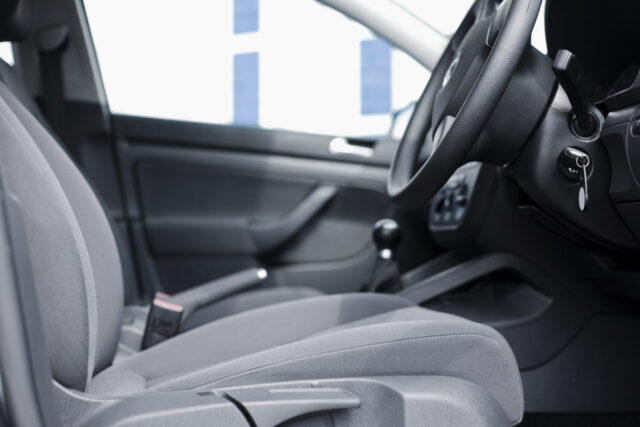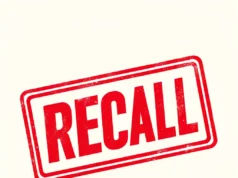
In the ever-evolving landscape of consumer products, ensuring safety and quality is paramount. Unfortunately, history has witnessed some of the most alarming product recalls, leaving a lasting impact on industries and consumers alike. As we delve into the 10 worst product recalls in history, we aim to shed light on the importance of product safety and highlight the measures that must be taken to prevent such catastrophic events from recurring.
1. Exploding Galaxy Note 7 Batteries: A Fiery Fiasco
One of the most notable product recalls occurred when Samsung’s flagship smartphone, the Galaxy Note 7, faced a widespread battery malfunction. Reports of exploding batteries surfaced, leading to fires and injuries. The recall had a substantial financial impact on Samsung, eroding consumer trust and tarnishing the brand’s reputation.
2. The Takata Airbag Debacle: Fragments of Danger
The Takata airbag recall, affecting millions of vehicles worldwide, stands as a sobering reminder of the consequences of compromised safety. Defective airbags manufactured by Takata were found to explode, sending metal fragments flying upon deployment. This recall, involving numerous automakers, resulted in multiple fatalities and injuries, and immense financial repercussions for the industry.
3. Ford Pinto Fuel Tank Flaws: A Deadly Design
The Ford Pinto recall serves as a testament to the dangers of prioritizing profits over safety. The Pinto’s fuel tank design flaw made it susceptible to rupture and catch fire upon rear impact. This catastrophic flaw resulted in numerous deaths and injuries and led to significant legal consequences for Ford.
4. Firestone Tire Failures: A Tread Separation Tragedy
Firestone, a renowned tire manufacturer, faced a devastating recall in the early 2000s due to tread separation issues in their tires. These defects caused numerous accidents, leading to injuries and fatalities. The recall involved millions of tires and had a profound impact on Firestone’s reputation and the automotive industry as a whole.
5. Peanut Corporation of America’s Salmonella Outbreak: Contaminated Consequences
In 2009, the Peanut Corporation of America was at the center of a major food safety crisis. Contaminated peanuts from their facility caused a widespread salmonella outbreak, resulting in hundreds of illnesses and several deaths. This recall emphasized the critical need for rigorous quality control measures in the food industry.
6. Toyota’s Unintended Acceleration: Accelerating into Turmoil
Toyota experienced a significant setback when reports of unintended acceleration in their vehicles emerged. The recall affected millions of cars worldwide and raised concerns about mechanical and electronic malfunctions. The incident damaged Toyota’s reputation for safety and reliability, highlighting the importance of thorough testing and quality assurance processes.
7. Johnson & Johnson’s Tylenol Poisonings: A Grim Discovery
In 1982, Johnson & Johnson faced a terrifying crisis when several individuals died after consuming cyanide-laced Tylenol capsules. This incident led to a nationwide panic and prompted Johnson & Johnson to recall millions of bottles. The company’s swift response, including introducing tamper-evident packaging, set a benchmark for crisis management and product safety protocols.
8. Mattel’s Lead-Paint Toys: Childhood Endangered
Mattel, a renowned toy manufacturer, faced a severe setback when it was discovered that some of its toys contained lead paint. This recall, affecting millions of toys worldwide, raised concerns about children’s safety and the need for stringent manufacturing and testing standards. It also highlighted the importance of supply chain management and quality control.
9. Volkswagen’s Diesel Emissions Scandal: A Cloud of Deception
Volkswagen, a leading automobile manufacturer, faced a massive recall and public backlash due to the diesel emissions scandal. The company deliberately manipulated emissions tests, misleading regulators and consumers. This scandal not only tarnished Volkswagen’s reputation but also sparked debates about environmental regulations and corporate ethics.
10. Chipotle’s E. coli Outbreak: Food Safety Compromised
Chipotle, a popular fast-casual restaurant chain, faced a significant setback when multiple outbreaks of E. coli infections were linked to their food products. These incidents led to widespread illnesses and a decline in customer trust. Chipotle’s response included overhauling its food safety protocols, highlighting the crucial role of quality control in the restaurant industry.
Learning from Past Recalls to Ensure a Safer Future
The 10 worst product recalls in history serve as cautionary tales, reminding us of the importance of stringent quality control, ethical business practices, and prompt crisis management. Companies must prioritize consumer safety, invest in robust testing procedures, and maintain transparent communication to prevent such catastrophic events.
By understanding these historical recalls, businesses can learn from past mistakes and implement measures that prioritize product safety, customer satisfaction, and long-term brand reputation. Remember, a strong commitment to quality and safety is paramount for any organization looking to build trust and outrank competitors in today’s market.







